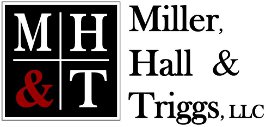Requiring Speakers To State Their Home Addresses Violates The Open Meetings Act By Richard M. Joseph richard.joseph@mhtlaw.com On September 4, 2014, the Illinois Attorney General issued a binding opinion stating that a public body that required speakers to provide their home addresses prior to addressing governmental bodies violates the Illinois Open Meetings Act. This opinion…
Discipline Can Be Subject to FOIA
Evaluating performance instead of discipline may avoid disclosure By…
Personal Electronic Devices and the Freedom of Information Act
Court holds that not all communication on personal electronic devices is subject to FOIA By Richard M. Joseph richard.joseph@mhtlaw.com In July, 2013, the Fourth District Appellate Court of Illinois, in the case of City of Champaign vs. Lisa Madigan (2013 WL 3704619), held that not all messages received by a public official on a personal…
Nominating Petition Deadline Moved to December 26, 2012
Governor Signs Legislation By Richard Joseph richard.joseph@mhtlaw.com As you may have been aware, the deadline for filing Nominating Petitions for the April 9, 2013 Consolidated Election was December 24, 2012. This was causing great consternation amongst local governmental entities since it would require the public body to stay open until 5:00 p.m. on Christmas Eve…
Duty to Post Compensation of Employees
Change to Open Meetings Act Requires Posting of Total Compensation Package By Richard M. Joseph richard.joseph@mhtlaw.com At this time of the year, most municipalities are in the process of establishing budgets and appropriations for the 2012/2013 fiscal year and establishing salaries for municipal employees. Due to a change in the Illinois Open Meetings Act (the…
Zoning Ordinances Cannot Impose a Substantial Burden on Religious Exercise
Churches Must Be on Equal Terms with Nonreligious Institutions By Katherine Swise katherine.swise@mhtlaw.com Regulating land use through zoning ordinances is one of the most fundamental functions of municipal government. However, recent federal court cases have highlighted the potential restrictions municipalities face when regulating land use as it applies to churches and other religious institutions. The…
What happens when a Board/Council member stops attending meetings or orally resigns?
By Joshua D. Herman joshua.herman@mhtlaw.com There will come a time for every body of local government that leads someone to ask: “What about Bob?” Maybe Bob is an elected alderman or trustee who has not come to a meeting in three months. Maybe he is the elected official who orally announced his resignation at that…
New Rules for Ordinance Violations
New Supreme Court Rules require review and updating of ordinances By Joshua D. Herman joshua.herman@mhtlaw.com On December 7, 2011, new Illinois Supreme Court Rules (“Rules”) governing ordinance violations went into effect. These new Rules address many issues a municipality faces when dealing with ordinance violations. The Rules clarify how a municipality may initiate ordinance prosecutions…
The Role of the Joint Committee under Senate Bill 7
Every District’s Joint Committee must hold its first meeting to discuss RIF issues by December 1, 2011 By Robert B. McCoy robert.mccoy@mhtlaw.com The Education Reform Act (commonly known as Senate Bill 7) created new rules for the reduction in force (RIF) and recall of honorably discharged teachers. In a nutshell, the old seniority system is…
Unanticipated Consequences of Talking to the Media
Recent case illustrates need for caution By: Patrick A. Murphey patrick.murphey@mhtlaw.com The Illinois Public Labor Relations Act provides it is an unfair labor practice to interfere with, restrain or coerce public employees in exercises of their rights under that Act. 5 ILCS 315/10(a)(1). Recently, in New Lenox Fire Protection District, 28 Public Employee Reports Illinois…
